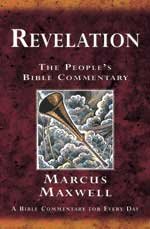There's only one big item in the news in Britain - Tony Blair has announced his retirement. His speech in his constituency had a bit of the "Don't Cry for Me, Argentina" about it. I particularly winced at the theme of "I truly believed it was the right thing."
Insofar as it referred to the invasion of Iraq, and the subsequent blood-bath, I don't doubt it. Blair has always done things because he thought they were right. And often I've agreed with him. More money for education, attempts to mend the NHS, the independence of the Bank of England, the Human Rights Act, the Good Friday Agreement, commitment to Europe, devolution and so on. Admirable, liberal and arguably the Right Thing. They were certainly not all his idea, and some built on foundations inherited from his predecessors (especially the Northern Ireland peace accord). None the less, he rightly supported them. Even most of his military adventures have been arguably right. Opposing Serbian genocide, for instance, is hard to criticise.
Even where I personally think he was absolutely wrong - the imposition of ID cards (the cost alone is staggering, and could wipe out the NHS debt if applied to something useful), the increasing removal of civil rights under the guise of fighting terror (why do we wage war on abstract nouns?) and the universal smoking ban - I'm sure he thinks they are right.
But Iraq, which despite all the good stuff, will be his abiding memorial, is different. Why? Not because it was unpopular (though in a democracy, anything which provokes a million people to take to the streets is likely to be suspect). To do what is right is sometimes necessarily to swim against the tide. I don't think it's obviously wrong to follow the USA's lead - though the quality of that lead is transparently suspect in this case.
I'm sure our outgoing Prime Minister genuinely thought he was right. He really did think Saddam Hussein had weapons of mass destruction. After all, the receipts are probably on file somewhere in Whitehall. They certainly are in Washington. What makes Iraq different is that Blair quite obviously went against his own convictions in pushing the attack through. False information was given to Parliament. The country as a whole was misled. The enterprise was touted as part of the response to terrorism when we all knew that Iraq had nothing to do with terrorism. If we wanted to invade a terrorist supporting regime, Iran was not much further away (not that I think Iran should be attacked either).
In order to do what he thought was right, he did wrong.
Of course, it may seem a small thing. Perhaps if there had been a proper plan for reconstruction, instead of an optimistically get-rich-quick scheme for American companies, if the Iraqi defence forces had been left intact, if a thousand things had been different, I wouldn't be venting my spleen to a minor blog. But I hope I would. It matters to do what is right. It matters all the more when wrong is done under the banner not of national interest, or cynical real-politik, but as a matter of moral principal.
To make matters worse, Blair has made no secret of his Christian faith, despite the fact that it has been used against him by the non-thinking chatterers. That's commendable. What isn't is the failure to think in anything like a Christian manner on the Iraq issue. If Christianity offers no alternative to the normal worldly mailed fist, it is hardly worth commending. Throughout history, Christian rulers have decided that it doesn't and therefore isn't. Blair has followed the historic pattern, without even the sorry excuse of no alternative. He could have stood with Europe, but chose to be an American neo-con instead. He could have gone with the visionary plan that church leaders from both the US and Britain put to him on the eve of the invasion, but he did not.
He did wrong. He claims the right, but in the end, delivers only the American Right, and that, sadly, is the legacy that overshadows all the good achievements of New Labour. As he leaves the ship, it may well be that he has opened the sea-cocks and left it sinking.
Friday, 11 May 2007
Subscribe to:
Posts (Atom)

